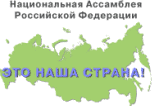|









 Áëîã Àíäðåÿ Èëëàðèîíîâà Áëîã Àíäðåÿ Èëëàðèîíîâà





 








ãîðèçîíòû ïðîìûøëåííîé
ïîëèòèêè
ÈÐÈÑÝÍ
|
ÌÀÊÐÎÝÊÎÍÎÌÈÊÀ
Fighting Financial Fires With Blini
03 October 2008 By Andrei Illarionov
From its peak on May 19 to its lowest point on Sept. 17, the Russian stock market has fallen by almost 58 percent. This is its largest decline since the crash of 1998. What is the cause of the current cataclysm?
The Kremlin has been quick to blame the West, and primarily the United States, for the country's troubles. Prime Minister Vladimir Putin blamed Western "speculators" who pulled out their investments en masse at the first sign of trouble. He also denied that Russia's aggression toward Georgia played any role in the market's fall. Putin suggested that the crisis is connected "not with the problems of the Russian economy, but with problems of the West's economy." In recent comments, he even referred to it as the "American contagion."
President Dmitry Medvedev concurred, saying, "The United States caused the whole crisis with its own financial market. ... Regarding the factors that were responsible for the drops in the Russian stock market, I would estimate it as follows: 75 percent of the fall in the stock market is connected with consequences of the global financial crisis and 25 percent due to our internal problem, including consequences of the war in the Caucasus."
How accurate are these assessments?
After May 19, stock markets in almost every country of the world started to decline, and Russia followed this downward trend. Therefore, in the first stage of the global crisis, the financial problems were by no means specific to Russia. This global decline continued for almost two months. During this period, the U.S. stock market fell by 11.5 percent, the global market by 12.9 percent and the Russian market by 13.1 percent. Because the Russian market's decline was slower in comparison to emerging markets, which fell by 17.5 percent overall, this may have confirmed for many observers what Finance Minister Alexei Kudrin claimed in January -- that Russia had become an "island of stability."
But all of that changed on July 18, when the RTS fell by 4.5 percent, while there was little or no change in the markets in the United States, Europe or in emerging markets. What happened on that day? The Federal Migration Service granted TNK-BP chief Robert Dudley a "temporary visa" -- valid for 10 days only. This was followed by a prolonged harassment campaign aimed at Dudley and other top managers from the British side of the joint venture. It became clear that the government was favoring the Russian shareholders in the conflict. In 2003, when TNK-BP was formed, the company had been touted as the crown jewel of successful joint ventures between Russian shareholders and a venerable foreign multinational corporation. It had the support at the highest level of both countries, including then-British Prime Minister Tony Blair and Putin. Thus, when this much-celebrated joint venture deteriorated into a nasty, underhanded shareholder battle, many investors drew their own conclusions about the unstable, unpredictable and arbitrary investment climate in the country. They started to pull their money out of Russia.
In the following weeks, Russia's stock market continued to drop. These declines were deeper than in other emerging markets, and this was because of the following additional events: Putin's promise to "send a doctor" to Mechel's director on July 24; the start of Russia's intervention in Georgia on Aug. 8; the Kremlin's unilateral recognition of independence for South Ossetia and Abkhazia on Aug. 26; and a whole series of official, inflammatory statements directed against the West from Sept. 3 to Sept. 17, which were accompanied by the decision to send strategic bombers to Venezuela and the announcement of naval maneuvers in the Caribbean Sea.
The authorities managed to achieve the impossible: In less than two months, Russia's stock market declined by 51.8 percent. To be sure, stock markets in other countries also declined during this period, but it was nothing like what happened in Russia. The U.S. stock market fell by only 8.5 percent, the global market by 12.4 percent and the overall market of developing countries by 25.4 percent.
Given those dynamics, it would be difficult to blame outside influences -- especially the United States -- for causing Russia's financial crisis. Had investors appraised the risk-return ratio for their Russian investments to be the same as that in the crisis-stricken United States, then the Russian stock market would have lost no more than the U.S. market did. And even if we were to take seriously what was reported in the Western media -- that top Russian officials believed that the U.S. government had instructed U.S. banks not to lend to Russian companies -- then why didn't investors from Europe, Asia and the Arab states happily rush in to snatch up those greatly devalued shares at bargain prices? On the contrary, they stayed far away from the Russian market because they also evaluated it as a high-risk investment.
The drop in world oil prices has also been cited as a contributing factor to the country's stock market crisis. Indeed, oil prices fell by 38 percent over a two-month period -- from July 17 to Sept. 17. But Russia's market -- which includes far more than just oil company shares -- fell even further. In fact, the main evidence against the "oil factor" argument is the performance of markets in other leading oil-exporting countries. Even in these countries, where the share of oil production in their gross national product is generally higher than Russia's, markets fell by only 20 percent.
In the end, only a small portion of the 51.8 percent decline in Russia's stock market can be attributed to the "American contagion." In reality, the "U.S. factor" could not have accounted for more than a 17 percent decline. But by insisting on blaming the United States for its financial woes, the Kremlin is trying to trick the Russian people, as well as themselves. Foreigners, however, would never fall for that nonsense.
As it turns out, at least half of the market's fall is attributable to domestic causes. Foremost among them were the Kremlin's attacks on Russian and foreign businesses, its aggression against Georgia followed by its recognition of independence for South Ossetia and Abkhazia, and the subsequent fears of investors and the international community as a whole that a new Cold War was about to start. Unlike Russia's leaders, investors are scared off by any form of war -- whether it is "hot" or "cold."
The total capitalization of Russian companies with shares traded on the stock market has fallen by almost $800 billion since May 19. Capitalization losses since July 17 alone account for more than $600 billion. Half of those losses -- more than $300 billion -- were the direct result of factors originating from Russia.
The Russian government pretended to be mitigating the effects of the crisis by pumping more than $100 billion of state funds into the stock market, but nearly all of these funds went to state-owned companies and to other businesses that have close ties to the government.
But Russia's stock market crisis was brought on by more than just superficial causes. The drop in global oil prices to $90 or $100 per barrel -- a symptom of the shifting winds of the global economy -- was not damaging enough to trigger a crisis of this depth. Neither could the liquidity crisis be the reason, with Russia currently awash in petrodollars. Systemic, institutional problems are the real cause of this crisis. There is a fundamental incompatibility between open global markets and the universal principles of tolerance and respect that govern it in the West, on the one hand, and the paranoia and aggressiveness of Russia's current leadership, with its cult of isolation and militarism and the modus operandi of street gangsters, on the other hand.
In Korney Chukovsky's classic children's poem, "Putanitsa" ("The Muddle"), a crocodile is unable to put out a fire with pirogi and blini. Similarly, the fire of Russia's deep and long-term institutional crisis cannot be extinguished with the financial "pirogi and blini" offered by Russian leaders -- particularly when these goodies are divvied out only to their close friends.
Andrei Illarionov, who was the economic adviser to President Vladimir Putin, is president of the Institute of Economic Analysis in Moscow and a senior fellow at the Cato Institute in Washington.
Âåðíóòüñÿ ê ñïèñêó
|

